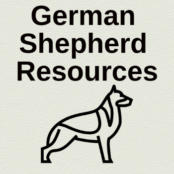Table of Contents
Introduction
The 4th of July is a beloved celebration in the United States, characterized by vibrant fireworks, barbecues, and social gatherings. While humans enjoy the festivities, our furry friends often endure a different experience. The loud noises and sudden flashes from fireworks can cause significant stress, leading to anxiety and fear in dogs. This blog offers practical tips for dog owners, pet lovers, and animal behavior enthusiasts on dog fireworks safety.
Understanding Dogs Firework Anxiety
Fireworks might be a feast for the human senses, but for dogs, they can be a source of significant stress. The loud bangs, unfamiliar smells, and sudden flashes can trigger a dog’s fight-or-flight response.
Why Fireworks Stress Dogs
Dogs have sensitive hearing, much more acute than humans. A sound that might seem loud to us is deafening to them. The unexpected nature of fireworks adds to the stress, as dogs cannot predict or understand the cause of the noise. This confusion can lead to heightened anxiety and panic.
Signs of Stress in Dogs
Recognizing the signs of stress is crucial for providing timely comfort to your dog. Common signs include:
- Panting and Drooling: Excessive panting and drooling are clear indicators of distress.
- Shaking and Trembling: Your dog may tremble or shake uncontrollably.
- Hiding: Dogs often seek refuge in small, enclosed spaces when scared.
- Vocalization: Whining, barking, or howling can be signs of anxiety.
- Destructive Behavior: Some dogs may chew or scratch furniture or doors as a reaction to stress.
Understanding these signs helps you take proactive steps to calm your dog during fireworks.
Preparing for the 4th of July
Preparation is key to ensuring your dog remains calm and comfortable during the 4th of July celebrations.
Plan Ahead
Start preparing your dog well in advance. Gradual desensitization to loud noises can help. Play recordings of fireworks at a low volume and gradually increase it over time, rewarding your dog with treats and praise to create positive associations.
Create a Safe Space
Designate a quiet, comfortable area in your home where your dog can retreat. This space should be away from windows and as soundproof as possible. Add familiar items like toys and blankets to provide comfort.
Calming Routines
Establish calming routines leading up to the 4th of July. Exercise your dog during the day to tire them out. Incorporate soothing activities like gentle petting or massage to reduce anxiety.
Seek Professional Advice
If your dog is particularly prone to anxiety, consider consulting a veterinarian or a professional dog trainer. They can recommend strategies or prescribe medications to help manage your dog’s stress.
On the Day What to Do
The 4th of July has arrived, and it’s time to put your preparation into action.
Morning Routine
Start the day with a long walk or play session to burn off excess energy. A tired dog is often a calmer dog.
Daytime Activities
Keep your dog occupied with engaging toys or puzzle feeders. Interactive toys can distract them from the anticipation of fireworks later in the day. If possible, invite a friend over to help keep your dog entertained.
Evening Preparation
Close all windows and curtains to muffle the noise and block out flashes of light. Turn on the television or play calming music to create a soothing environment. Ensure your dog is in their designated safe space with all their favorite comfort items.
Monitor Your Dog
Keep a close eye on your dog’s behavior throughout the evening. If they show signs of stress, try to remain calm yourself. Dogs often pick up on our emotions, so a calm demeanor can help soothe them.
Post-4th of July Care
Once the fireworks have ended, it’s essential to support your dog’s recovery.
Immediate Aftercare
Reassure your dog with gentle petting and a calm voice. Offer treats and praise to reinforce positive behavior. Allow them to relax in their safe space until they feel comfortable enough to come out.
Identify Lingering Stress
Even after the fireworks have stopped, some dogs may exhibit ongoing signs of stress. Watch for changes in behavior such as increased clinginess, loss of appetite, or reluctance to go outside. If these symptoms persist, consult your veterinarian.
Long-term Strategies
Consider implementing long-term strategies to help your dog cope with future fireworks events. Desensitization training can be beneficial, gradually exposing your dog to loud noises in a controlled environment to build their tolerance. Regular reinforcement of calming routines and maintaining a predictable schedule can also reduce anxiety over time.
Conclusion
Ensuring a stress-free 4th of July for your dog requires preparation, attentiveness, and compassion. By understanding the impact of fireworks, preparing in advance, and taking proactive steps on the day, you can help your furry friend remain calm and comfortable. Remember, every dog is different, so tailor these tips to suit your pet’s unique needs.
.Take action now and make the upcoming 4th of July a peaceful celebration for both you and your dog

